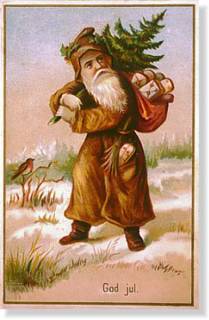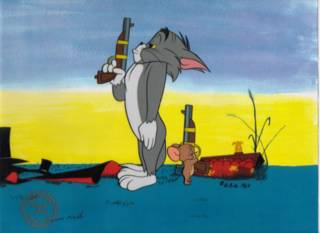
wassail, n.
(Forms: 3 wæs hæil, wæshail, washayl, washail, wesseyl, 3–4, 7 wassayl, 3, 6–7, 9 arch. wassaile, 5 wassaylle, wessayle, (whatsaile, -saill), 6 wassaill, -ayle, 6–7 wassall, 7–8 wassal, (7 vassaile, Hist. was-haile, washeall, waes heal, 9 waisall, waissel, arch. was-hael), 5–9 wassel(l, 3– wassail. [ME. wæs hæil etc., a. ON. ves (= later ver) heill, corresp. to OE. wes hál lit. ‘be in good health’ or ‘be fortunate’: see be v. A. 3 and whole a.
As an ordinary salutation (= "hail" or "farewell") the phrase, or an approximation to it, occurs both in OE. (hál wes þú, and in pl. wesað hále: see be v. A. 3) and in ON. (pl. verið heilir). But neither in OE. nor in ON., nor indeed in any Teut. lang., has any trace been found of the use as drinking formulas, of the phrases represented by wassail and drinkhail. It seems probable that this use arose among the Danish-speaking inhabitants of England, and became more or less common among the native population; in the 12th c. it was regarded by the Normans as markedly characteristic of Englishmen. The earliest known occurrence of the phrases is in Geoffrey of Monmouth vi. xii. (c1140), in the well-known story of Rowena (wes heil+drinc heil: v.r. was heil, printed edd. corruptly wacht heil). Geoffrey's attribution of the phrases to the 5th century is an anachronism; the original story as told by Nennius contains nothing corresponding to them. In Wace's Brut (c1180), which is a metrical version of Geoffrey, various MSS. have weshel, waisseil, gasel; drinkel, drincheheil, drechehel. That Wace's acquaintance with the ‘English’ phrases was not wholly derived from the passage in Geoffrey is shown by his reference to them in the Roman de Rou, where it is said that the night before the battle of Hastings was spent by the English in revelry, with cries of weissel (v.rr. wesse heil, welseil, weseil) and drincheheil (v.rr. drinceseil, drinqueheil, drinkeil). In the Speculum Stultorum of Nigellus Wireker (c 1190) the English students at the university of Paris are praised for generosity and other virtues, but are said to be too much addicted to wessail and dringail. The earliest example of the phrases in an English context is in Layamon's translation of Wace.
In drinkhail the second element is, as in wassail, the ON. adj. heill used as complement. Although the phrase drekk heill is not recorded in ON., it has an exact syntactical parallel in sit heill, ‘sit in health’. Whether the form of the first element in drinkhail is due to OE. influence or is archaic Scandinavian is doubtful; the form drechehel in one MS. of Wace is noteworthy from its resemblance to the ON. of the literary period.]
1. A salutation used when presenting a cup of wine to a guest, or drinking the health of a person, the reply being drink-hail.
c1205 Lay. 14309 Reowen+bar an hir honde ane guldene bolle i-uulled mid wine+& þus ærest sæide in Ænglene londe Lauerd king wæs hæil [c1275 wassayl]. Ibid. 14332 Þat freond sæiðe to freonde+Leofue freonde wæs hail. Ibid. 14970 Heo fulde hir scale of wine+& þus hailede him on+Lauerd king wæshail [c1275 wassail]. 13+ E.E. Allit. P. B. 1508 WeŠe wyn in þis won "wassayl!" he cryes. c1400 Brut 52 Ronewenne+come wiþ a coupe of golde+and knelede bifore þe kyng, and saide to him "Whatsaile!"þat was þe ferst tyme þat "whatsaile" and "drynkehaile" come vp into þis lande; and fram þat tyme into this tyme it Haþ bene wel vsede. 1568 Grafton Chron. II. 116, I trust this wassall shall make all England glad. And with that he dranke a great draught, the king pledging him. 1832 Motherwell Poems, Battle-Flag of Sigurd i, Then lift the can to bearded lip, Wassaile! to every dark-ribbed ship, To every battle-field! 1843 Lytton Last Bar. i. v, Fair mistress Sybill, your dainty lips will not, I trow, refuse me the waisall. [Another ed. reads waissel.] 1860 Longfellow Wayside Inn, K. Olaf xii. xiii, The Berserks drank "Was-hael! to the Lord!"
b. As a mere salutation. quasi-arch.
a1643 Cartwright Ordinary iv. ii, Ha. What? who goes there? Moth. Waes heal thou gentle Knight.
¶c. ironically. A salute, smart attack. Obs.
c1400 Laud Troy-bk. 9020 Odemoun+Toke Menelaus In that swyng, And him bare ouer his hors tayl: He aff him there suche a wassail, That he lay longe In colde swot.
2. The liquor in which healths were drunk; esp. the spiced ale used in Twelfth-night and Christmas-eve celebrations.
wine and wassail (now arch., echoing Shakes.): vaguely, strong drink in abundance (cf. sense 4).
c1300 Havelok 1246 Wyn and ale deden he fete, And made[n] hem glade and bliþe, Wesseyl ledden he fele siþe. 1494 in Househ. Ord. (1790) 121 When the steward cometh in at the hall doore with the wassell, he must crie three tymes, Wassell, wassell, wassell. a1548 Hall Chron., Hen. VIII, 9 Then was the wassaill or banket brought in, and so brake vp Christmas. 1601 Holland Pliny xxv. viii. II. 224 And even at this day [in Spain] in their great feasts+they have a certaine Wassaile or Bragat, which goeth round about the table, made of honied wine or sweet mead, with+hearbes in it. 1605 Shakes. Macb. i. vii. 64 His two Chamberlaines Will I with Wine, and Wassell, so conuince, That Memorie+shall be a Fume. 1616 B. Jonson Forest iii, The jolly wassall walkes the often round, And in their cups, their cares are drown'd. 1616 I Masque of Christmas 2 Enter+Wassal, Like a neat Sempster, and Songster; her Page bearing a browne bowle, drest with Ribbands. 1661 New Carolls for Christmas, For Twelfth-day iii, The Wassell well spiced, about shall go round. 1742–50 R. O. Cambridge Archimage xiii. Wks. (1803) 39 'Bove all things else he Wassel priz'd and ale. 1808 Scott Marm. vi. Introd. 64 On Christmas eve+The wassel round, in good brown bowls Garnish'd with ribbons, blithely trowls. 1816 I Old Mort. ix, Women, wine, and wassail, all to be had for little but the asking. 1824 W. Irving T. Trav. I. 7 The wine and the wassail of mine host began to operate upon bodies already a little jaded by the chase. 1836 Dickens Pickw. xxviii, They sat down+to a substantial supper, and a mighty bowl of wassail,+in which the hot apples were hissing and bubbling. 1850 Tennyson In Mem. cv. v, And strangely falls our Christmas-eve.+ But let no footstep beat the floor, Nor bowl of wassail mantle warm. 1851 Longfellow Gold. Leg. i. Court-yard of Castle 17 No song, no laugh, no jovial din Of drinking wassail to the pin. 1857 G. A. Lawrence Guy Liv. iv, Two hundred gownsmen, wild with wrath and wassail, came leaping to the rescue. 1898 J. B. Crozier My Inner Life v. 43 He was much addicted to wine and wassail too, as his blood-red face sufficiently attested.
†3. A custom formerly observed on Twelfth-night and New-Year's eve of drinking healths from the wassail-bowl. †Also, ? the person invited to drink from the wassail-bowl. Obs.
1598 E. Guilpin Skial. (1878) 25 A wassaile on twelfe night. 1612 Selden Illustr. Drayton's Poly-olb. ix. 153, I see a custome in some parts among vs,+I meane the yearely washaile in the country on the vigil of the New-yeare. a1654 I Table-Talk (1689) 42 The Pope in sending Rellicks to Princes, does as Wenches do by their Wassels at New-years-tide, they present you with a Cup, and you must drink of a slabby stuff; but the meaning is, you must give them Moneys. 1658 Phillips, Wassail,+an ancient Ceremonious custome, still used upon twelf day at night, of going about with a great bowl of Ale, drinking of healths. 1661 New Carolls for Christmas, For Twelfth-day ii, For a King of our Wassell this night we must chuse.
4. A carousal; riotous festivity, revelling.
1602 Shakes. Ham. i. iv. 9 The King doth wake to night, and takes his rouse, Keepes wassels. 1606 I Ant. & Cl. i. iv. 56 Anthony, Leaue thy lasciuious Vassailes. 1614 R. Tailor Hog hath lost Pearl G3, I sweare,+By Cresus name and by his castle, Where winter nights he keepeth wassell. 1805 Scott Last Minstr. v. viii, The blithesome signs of wassel gay Decay'd not with the dying day. 1820 Byron Juan iii. lxi, Meantime the lady and her lover sate At wassail in their beauty and their pride. 1820 W. Irving Sketch Bk. (1849) 148, I at length arrived in merry Eastcheap, that ancient region of wit and wassail. 1848 Lytton Harold iv. ii, A board was spread and a wassail was blithe around me. 1878 H. Phillips Jr. Poems fr. Sp. & German 72 Two kings held wassail in Orkadàl. 1903 R. S. Hawker Footpr. Far Cornwall 28 Now there was signal made of banquet in the halls of Stowe, of wassail and dance.
†5. A carol or song sung by wassailers; a wassailing or health-drinking song. Obs.
In quot. 1607 ironical or jocular.
1607 Beaum. & Fl. Woman-Hater iii. i, Have you done your wassayl? 'tis a handsome drowsie dittie I'll assure ye, now I had as leave hear a Cat cry. c1650 New Christmas Carols, Carrol for Wassel-Bowl 7 Good Dame here at your Door Our Wassel we begin.
6. attrib. and Comb., as (sense 3), wassail-candle, -day, -singer, -singing; (sense 4), wassail-bout, -revelry, -roar, -rout, -season, -song; also wassail-cup = wassail-bowl.
A spurious compound wassail-bread, given in many Dicts., is due to a misinterpretation of wastell-bread: see wastel. For a similar figment, wassail-cake, see quot. 1686–7 s.v. wassail v. 2.
1840 Longfellow Skeleton in Armour vii, Many a *wassail-bout Wore the long Winter out.
1597 Shakes. 2 Hen. IV, i. ii. 179 Iu. What? you are as a candle, the better part burnt out. Fal. A *Wassell Candle, my Lord; all Tallow.
1634 Brereton Trav. (Chetham Soc.) 6 Such as they met gave them money+to buy a *wassail-cup, a carouse. 1600 Holland Livy xxvi. xiii. 593 The same wassaile cup [L. poculum idem] that first will be presented to me, shall go round about to you all. 1853 C. Brontë Villette xxv, Let us haue a Christmas wassail-cup and toast Old England here, on the hearth.
1742 Shenstone Schoolmistr. xiii, O *wassel days! O customs meet and well!
1814 Scott Ld. of Isles vi. xix, But now, from England's host, the cry Thou hear'st of *wassail revelry.
1808 I Marm. i. xxx, This was the sign the feast was o'er; It hush'd the merry *wassel roar.
Ibid. iii. Introd. 187 Of forayers, who,+home returning, fill'd the hall With revel, *wassel-rout, and brawl.
1767 Mickle Concub. i. xxix, Now fly the *wassal Seasons wingd with Glee.
a1825 Forby Voc. E. Anglia, *Wassail-singers.
1895 ‘Q’ [Quiller-Couch] Wand. Heath 182 December and January, with+carols and *wassail-singing.
1829 Scott Anne of G. xxiii, The chorus of a *wassel-song, which some reveller was trolling over in his sleep. 1854 Grace Greenwood Haps & Mishaps 88 A hall of the old castle, which had rung to the clang of rude armour, and the wassail songs of Erin's princes and knights.






